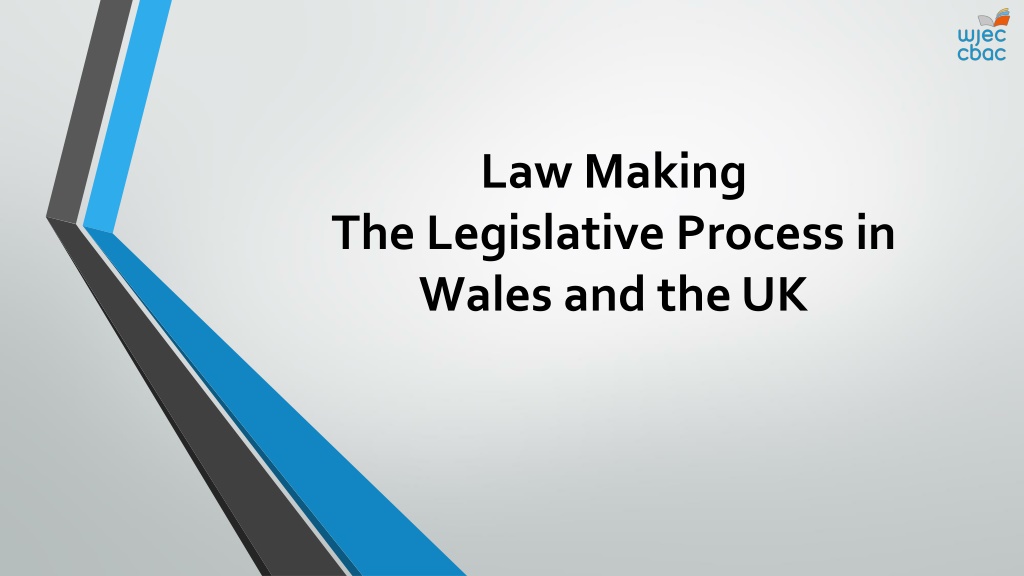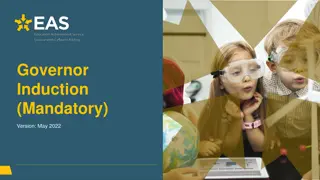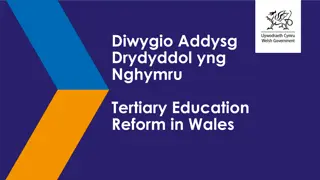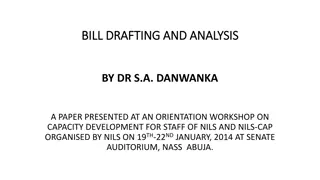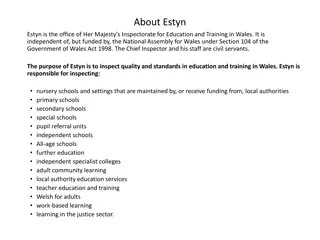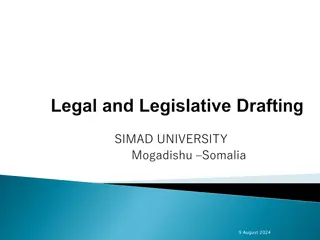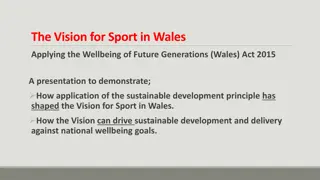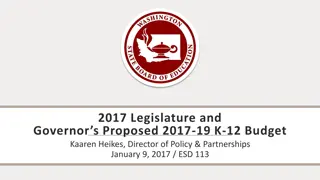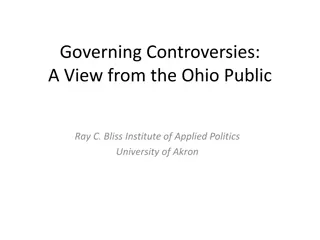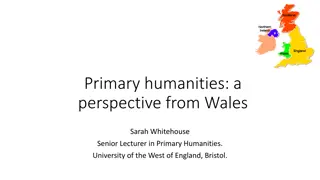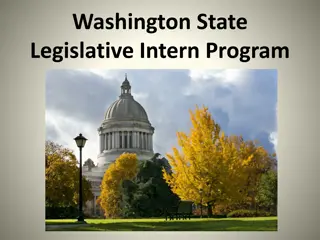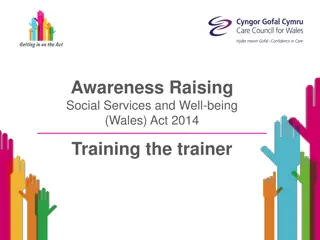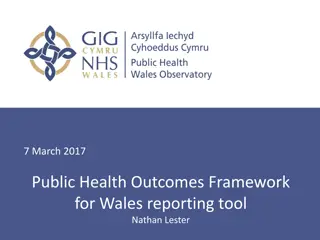Understanding the Legislative Process in the UK and Wales
Explore the legislative process in the UK and Wales, from the composition of Parliament to the role of the House of Commons and House of Lords. Learn about the power of Parliament, the influence of EU membership and the HRA 1998, and the creation of Acts of Parliament. This comprehensive overview touches on the various stages of lawmaking, types of bills, and the impact of devolution in Wales.
Download Presentation

Please find below an Image/Link to download the presentation.
The content on the website is provided AS IS for your information and personal use only. It may not be sold, licensed, or shared on other websites without obtaining consent from the author. Download presentation by click this link. If you encounter any issues during the download, it is possible that the publisher has removed the file from their server.
E N D
Presentation Transcript
Law Making The Legislative Process in Wales and the UK
Objectives Describe the various chambers and people who make up Parliament and the Welsh legislature Explain the different types of Bills Explain how an Act of Parliament is made Explain the process of creating legislation in Wales and the UK Critically evaluate the legislative process Explain the devolution settlement in Wales Evaluate the effect of EU membership and the HRA 1998 on Parliament ( please see lesson plans & PowerPoint's on EU legislation and the ECHR / HRA 1998 ).
Legislative Process Q. Statues are made by Parliament. What is Parliament made up of? House of Commons House of Lords Monarch
Legislative Process Parliament has the power to: Make laws Raise taxes In Britain Parliament has complete power in law there are no limits on what it can do, Parliament is sovereign. In reality there are lots of limits. What limits can you think of? EU membership Effect of the HRA 1998
The House of Commons The House of Commons has about 650 elected members of Parliament made up of all the various political parties and the Government of the day. The House of Commons is the most powerful part of Parliament. It can force laws through even though the Lords may disagree.
The House of Lords House of Lords Act 1999 The House of Lords made up of: Hereditary peers who have inherited their title 92 of them (soon to lose their right to sit in the Lords) Life peers Some bishops and judges There is an argument going on over who should sit in the Lords and whether some or all Lords should be elected
The Monarch The Queen is a CONSTITUTIONAL MONARCH Queen Elizabeth II is HEAD OF STATE The Queen is a FIGUREHEAD her powers are limited by the laws and customs of Britain The Queen is head of: The armed forces The Church of England The legal system The country is governed in her name.
Making an Act of Parliament Manifesto Green Paper White Paper Bills: All statutes begin as a Bill 3 types: 1. Public Bills 2. Private Members Bills 3. Private Bills
Making an Act of Parliament Monarch Royal Assent House of Lords House of Lords Third Reading Report Stage Committee Stage House of Commons Second Reading First Reading Bill
Making an Act of Parliament First Reading title is read to the House of Commons Second Reading proposals fully debated MPs vote whether to proceed Committee Stage detailed examination amendments can be made Report Stage Committee reports back to the House, vote is taken Third Reading Bill re-presented to the House - vote taken.
Making an Act of Parliament House of Lords Bill then goes to the Lords goes through similar process as the Commons, any amendments must go back to Commons for consideration The House of Lords checks bills and improves them. It can delay some laws for up to a year. They CANNOT block legislation.
Making an Act of Parliament The Parliament Acts of 1911 & 1949 allows Royal Assent to be given without approval of the Lords. 4 examples of where this has happened: 1. 2. 3. 4. War Crimes Act 1991. European Parliamentary Elections Act 1999. Sexual Offences (Amendment) Act 2000. Hunting Act 2004. R (on the application of Jackson & others) v Attorney General (2005)- Countryside Alliance - challenge to the use of the Parliament Act 1949 to bring in the Hunting Act.
Royal Assent In theory the Queen must give her consent to all legislation before it can become law: In practice consent is never refused Bill then becomes an Act of Parliament and the law. Acts of Parliament contain the following statement, and now because of the HRA 1998 must state whether they are compatible or incompatible with human rights: Be it enacted by the Queen s most Excellent Majesty, by and with the advice and consent of the Lords Spiritual and Temporal, and Commons, in this present Parliament assembled, and by the authority of the same, as follows:
The Welsh Legislature In 1998 the Government of Wales Act created the National Assembly for Wales as a single corporate body This in effect provided the Assembly with the right to create secondary legislation and have 60 Assembly Members (AMs) 2006 the Government of Wales Act (GOWA) was passed in the Westminster Parliament and transferred power to the Welsh Assembly to make its own law (primary legislation) within a number of specific areas, such as education and health Following a referendumon the National Assembly for Wales s legislative powers held on 03 March 2011, the people of Wales voted in favour of granting the National Assembly for Wales further powers for making laws in Wales.
The creation of legislation in the Welsh Assembly A Welsh Assembly Measure goes through a similar process as a Bill goes through in the Westminster Parliament but the terminology is different. Before a proposal (Bill) become law it must go through five stages: Members of the Welsh Assembly (referred to as AMs Assembly Members) consider and agree in principle on the Bill. A detailed consideration of the Bill. This involves amending the Bill by a selected committee of Ams. A debate which takes place in the chamber of the Assembly. This provides an opportunity for AMs to debate the proposed legislation and involves all AMs from different political parties. Passing the final draft of the Bill to the National Assembly for consideration. The final draft of the Bill is also passed to the monarch at the Privy Council. The announcement when the Bill will come into force.
